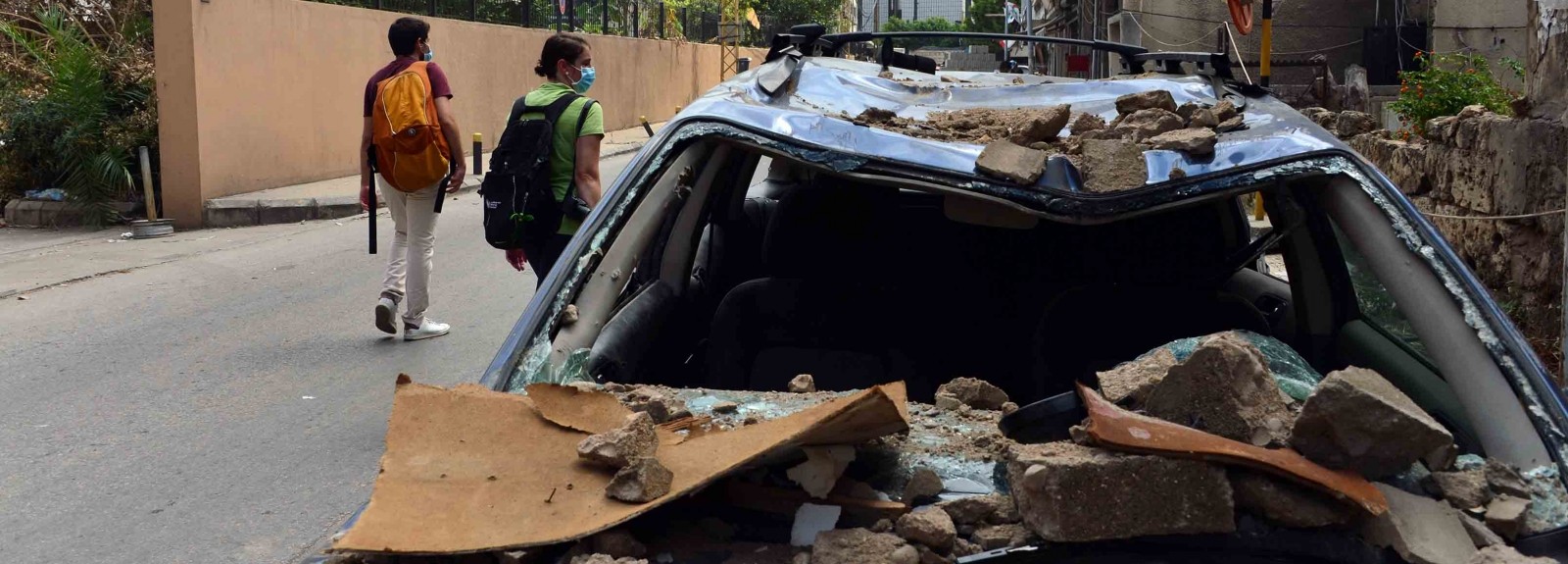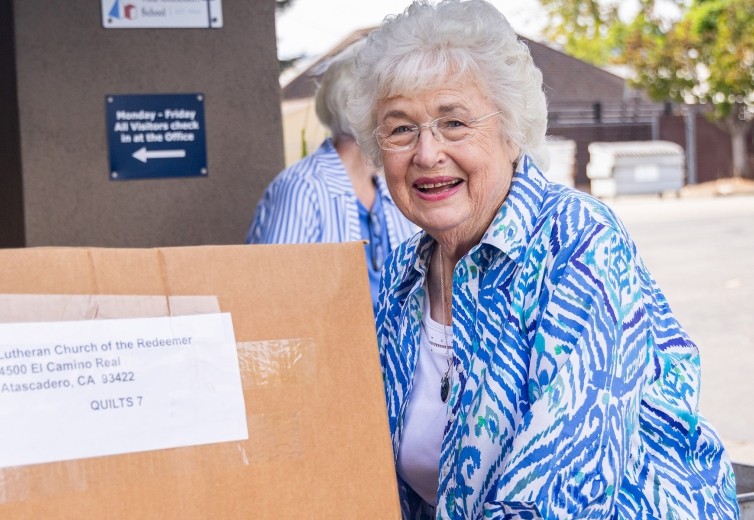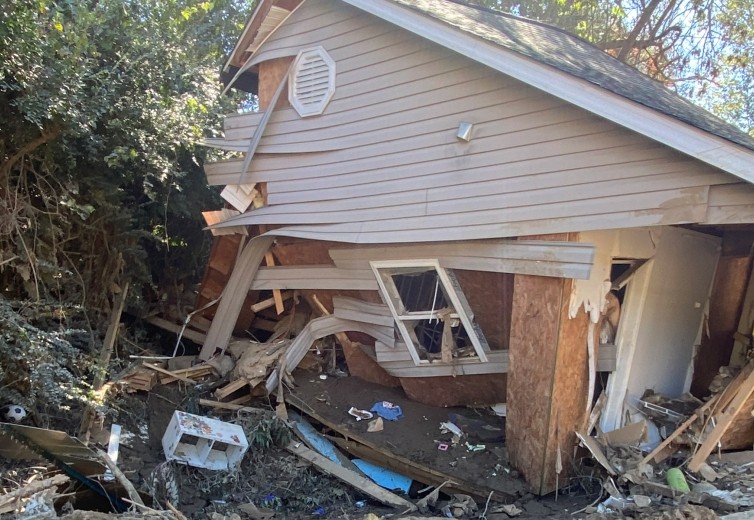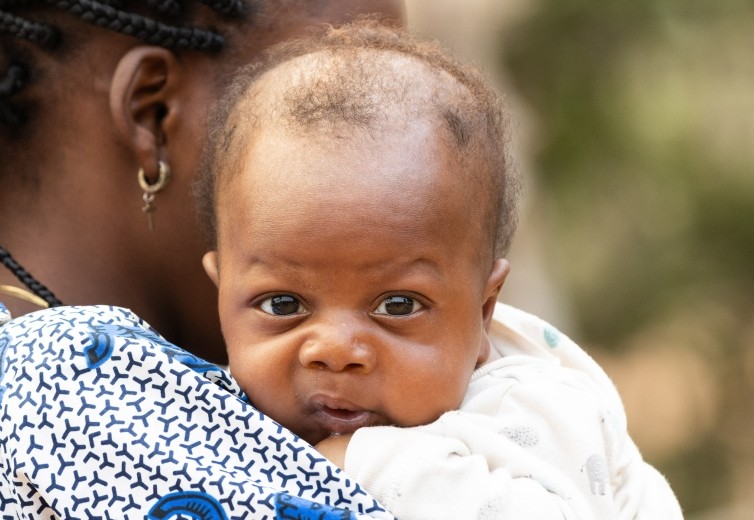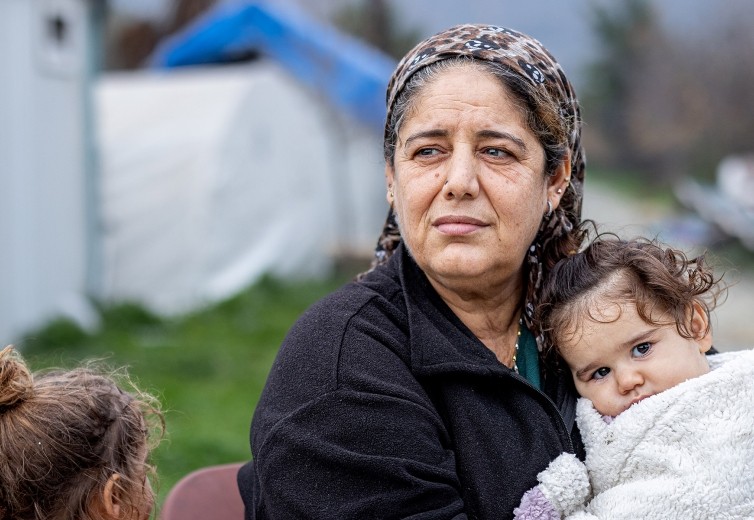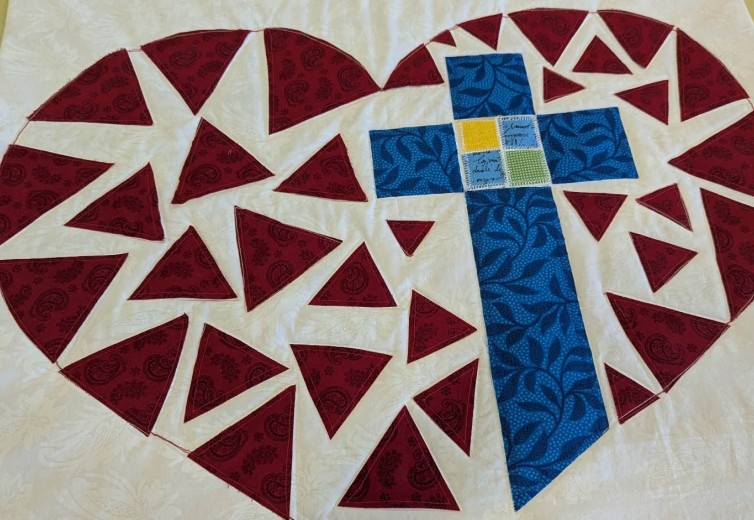Matt Hackworth, senior advisor for marketing and communication, is in Beirut alongside Nicole Hark, senior director for Asia & the Middle East.
***
Tuesday, October 13
NH: The time is flying fast, but I was fortunate to have a brief reprieve from back-to-back meetings yesterday to join a family friend for lunch in one of Beirut’s main business districts . Hamra was, on my first trip to Beirut in 2017, a bustling street, blocked on both ends to create a pedestrian thoroughfare and crowded with tourists and locals alike, seeking the best deal or some souvenirs to take home. While it is still more active than most places in Beirut these days, the evidence of the economic crisis and COVID lockdown over the last year has taken its toll on Hamra. Nearly every third storefront you pass is empty, and all along the street you find those most in need – disabled and elderly, mothers with babies, and small children – seeking support from every passerby. We settled in to an outdoor table (always mindful for fresh air due to COVID risks) and ordered our lunch, some of the best schwarma in town. While we chatted and caught up about how Beirut is recovering from the blast, what might be coming next for the political establishment and formation of a new government, I noticed two young boys approaching our table. One had a small pack of six roses to sell, the other empty-handed, but both zeroing in on us to approach and try to make a sale.
I think everyone has different reactions to those struggling to make ends meet that seek donations in public – compassion, pity, empathy, disbelief, anger or mistrust – in general, I would say that mine is helplessness. It is a battle within me no matter where I am in the world (including at home in the US), because my very job – the thing I focus on day in and day out – is to find pathways out of poverty for those in need…. And yet when confronted with the individual case I am often conflicted between wanting to help, and knowing that doing so in that moment often only perpetuates some of the worst behaviors and practices that my work battles against when trying to create systemic change. So, I freeze…. Or apologize…. Or awkwardly side-step while recommitting myself to work harder, do more, to achieve that day – someday -in which I work myself out of a job. It is compounded, of course, with the language barrier. My Arabic knowledge is mostly Classical, not the local dialect, and so I don’t even have the right words to explain the emotions I’d want to convey in a way they’d understand.
Before I can speak, however, my lunchmate starts chattering with the boys, friendly and open, and after a minute, I catch a few words I do recognize – “meat or chicken?” (Yes, chicken is meat, too – but here it’s how red meat is distinguished). It doesn’t take but a moment for me to realize that he’s offering them some lunch. While firmly refusing to give money or buy anything, he reiterates again that they can have anything that we have on the table, and asks again whether they’d like some meat or chicken. After a moment, the one says “chicken” and then the other chimes in. He rolls up some of the thinly sliced schwarma into pita, and hands it over. They scarf it down while walking away, and we go back to our lunch.
The conversation turns, naturally, to the plight of the refugees and in particular, to the children… and what sort of childhood they have had as almost a decade of conflict has engulfed the region. I don’t think it’s an understatement to say that every Syrian child is affected by this war - by the violence if they stayed, displacement if they left, disruption in their home life and severed family ties. And that’s before you look at things like basic medical check-ups, education, and normal play, to ensure a strong childhood and a stronger adult. Perhaps not surprisingly during this discussion, word has spread that we have food to share, and a young girl approaches the table. She also attempts at first to ask for money, but when it is clear that’s not an option, she comments that water would be welcome, and we pass her a glass. Once again, the question of “meat or chicken” is posed, and this time add a pickle on the mini sandwich after confirming that’s also an option. Yet again, my lunch mate apologizes to me for the interruption to our conversation, while I am nearly moved to tears at the basic human decency on display.
In my head, I know that these small sandwiches are not changing the current dire situation for these children, and they’re not solving the looming challenges facing their parents every single day: how to feed, shelter, and clothe their children who are growing up on the street, for lack of better options. Yet in my heart, I also know that what little nourishment we had to offer had a far greater purpose, and that was to acknowledge to these kids that we see you and you matter. I certainly don’t have the solutions for every child we met that day, and I would surely have so many questions about what brought them to that point and what their daily situation is like, and how we can connect them into a broader system and way of support…. But in that moment, the most important question we chose to focus on was glaringly obvious for its simplicity: meat, or chicken?
Sunday, October 11
MH: The signs approaching the blast site are subtle at first: a barricade gone, plywood now covering what was a gaping hole in a home's facade. There are signs of improvement and recovery. The busy restaurant Paul at the opening of Gemmayzeh Street is once again open, rubble cleared away from the path of customers who soak up the last of the summer with a glass of Lebanon’s famous rosé in a nod towards reclaiming normalcy, or something like it. And while just a block away the frames of the port’s warehouses still sit like small patches of twisted metal trees, gone are most of the smoking heaps and spray of fire hoses. The port itself has re-opened ahead of schedule, welcoming ships with vital supplies at about 75 percent capacity before the blast. Signs of progress can be felt, but the emotion in the air is full of anxiety and uncertainty in this country where people wake up each day without access to their life savings and continued questions about how they move forward with such a fragile government. Vivid memories of civil war echo every time there’s an explosion or fire. A garrison-sized Lebanese flag now flies over the blast site, standing on end if not for national pride, at least for an easy breeze off the Mediterranean Sea.
Saturday, October 3rd
NH: I returned back to Beirut on Thursday evening, and tomorrow marks two months after the blast. The start of October feels like a countdown clock – we’re racing to repair windows and doors before the rainy season at the end of this month. While it’s nothing compared to the monsoons that can flood entire villages in Asia, it’s still not something I’d want to face without windows to protect from the elements - one gust of wind and the household risks other goods getting wet and ruined from a downpour. Glass is a hot commodity at present, given the scale of the need, and it’s quite common when you walk the streets to see a delivery truck on at least every other one, with a few stacks of glass cut to size, ready for installation.
Humanitarian Assistance Director Carrie Taneyhill rejoins the response effort in Beirut.
***
Thursday, Sept 10
CT: Another day of cleaning up in Beirut has been covered by thick, dark smoke. Some noticed it streaming from the area of the port, others found out through news reports. The timing of this new fire in Beirut’s port couldn’t be worse. With the government in flux the army has taken the lead on fighting the blaze. And as it burns there are thousands who see horrible reminders of the Aug. 4 blast in the thick, dark column reaching to the sky along the Mediterranean sea. A wave of panic has taken hold, understandably, and there is serious concern about keeping the blaze under control. What if something else explodes?
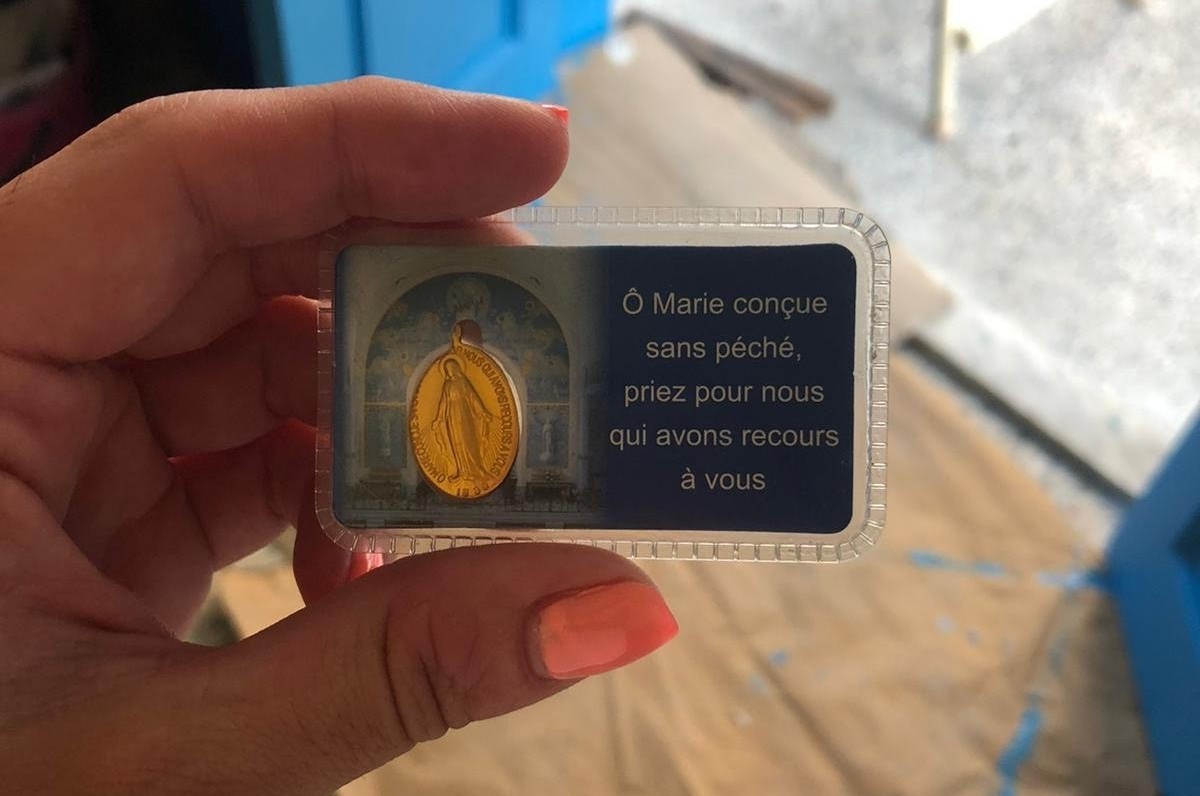
A gift from a new friend, with the hopes of keeping safe.
Tuesday, Sept 1
CT: I returned to Beirut Sept. 1, and my time so far has been spent attending to administrative tasks that make ongoing response projects come to life. However today I had the opportunity to visit four amazing, resilient families in the Karantina neighborhood, one of the poorest areas in Beirut. I had been to visit this area on my first trip and there were debris removal teams everywhere. Today, the sounds of banging hammers and saws filled the air. Almost all of the homes we visited were active construction sites, making our visits brief. Two of the homes sustained minor damage with windows, doors and kitchen appliances bearing the brunt of the blast force. However, the other two homes caused my jaw to drop. There was nothing left. A mattress here, a broken washing machine there. Each home we visited will participate in our just-launched kitchen appliance distribution program. This will allow the families the ability to properly prepare and store meals.
I have visited many families in my years of doing emergency work but one gentleman I met today will stick with me forever. He asked us to call him “Uncle” Emile and is 87 years young. There was a spring to his step and he explained his blast experience with a lot of big gestures. He had been in the kitchen making tea and happened to bend down the moment a large wooden window came flying at his head. He told me that the Virgin Mary saved his life that day and showed me a card he carries in his wallet. Without missing a beat, he brings me a comb he used during his time as a hairdresser. He gave me various tips like never use your nails to wash your hair. At the end of visit, he brings me a prayer card with a small golden Virgin Mary inside of it. He tells me that I remind him of his sister and he wants me to keep this. “God brought us together in this moment and this card will protect you in your time of need.”
I don’t think I have ever cried on a visit but I would be lying if I said I wasn’t a little choked up as I left this incredibly kind soul.
Signs of hope amidst the disaster cleanup.
Monday, Aug 31
NH: Walking the streets of Gemmayze and Mar Mikhail the other morning, for a moment it felt like any other walk through any other city starting its day… a motorbike or two streams past, a few folks gather in front of a building sipping coffee, and kids chattering as a stray cat walks past. To some extent, the streets are returning to normal in Beirut, with the glass swept away and the worst of the barriers pushed aside to allow for trash trucks, light construction vehicles, and the bigger clean-up crews to make their way. Zooming out from the glance of normalcy amid the people trying to rebuild their lives, though, you can see just how much remains to be done. Each doorway and shopfront is in a different stage of disrepair – to some, it might as well have happened yesterday because of the total destruction still present, and for others, a laborer is applying fresh spackle. Several cars along every street we turned down are completely totaled, left in their original parking place and largely ignored as the least awful thing that happened to the residents of this community.
It’s relatively quiet as everyone goes about their work with minimal words, accompanied primarily with the scrape, scrape of shovels collecting the debris that’s been piled and moving it into dumpsters, or the periodic large crash! of someone throwing more broken furniture, paver stones, or wooden framing out the front door and into a pile. After the first weeks of panic, confusion, first aid and family and neighbors coming together to grieve, the people of Beirut are rebuilding, one day at a time. Watching from below as one man sweeps the debris and dust into a container and another works to reapply concrete to his damaged balcony, I felt a surge of optimism at these promising signs of life, of people committing, step by step, to the long road ahead. A sign in front of a local restaurant noted “We are staying” – a sentiment that speaks volumes at a time when many are wondering whether to stay or go…. Or worse, how quickly they can go.
It is a herculean effort. The economic crisis that began nearly a year ago has wiped out savings, with money in local banks now referred to as “lollars” – their value so meaningless and currently inaccessible in real liquidity that even the middle class is on the verge of collapse. Local business owners lost their homes and their shops in the same instant, and the cost of repairs is more than triple what it used to be courtesy of the economic downturn and inflation. It’s a race against the clock to secure funding and supplies before the fall rains and harsher winter temperatures make the situation even worse.
Cleaning up continues along Gemmayze Street.
Friday, Aug. 28
NH: This morning was my first visit to the blast site, nearly a full week upon arrival and the first break in a non-stop series of meetings since I arrived. I’m still swimming in reflections, and I imagine I’ll have more photos and thoughts to share as I process it myself over the weekend. But the first step outside the car was actually a memory for me – the driver couldn’t possibly have known, but he dropped us at the door of a damaged restaurant that had been my last meal in Beirut in February 2018. A meet up with friends in the popular nightlife street in Gemmayze. You can probably imagine my shock of recognition, and realization, stepping out of the car and looking around to realize just how much has changed… not just the passing of a couple years, or the shuttered doors of COVID lockdown, but the piles of debris, broken glass, and completely obliterated motorbike and car in front. We walked a few blocks to take in the scene and see how far things have come in the last three weeks, but with that dinner a fresh memory in my mind, it was clear to see how far we have to go in the weeks ahead.
Wednesday, Aug 26
NH: Last night I was able to get out for dinner, a rarity under the curfew and workload, but a welcome break. Riding back to my hotel in the evening on the main highway along the water, I passed through the neighborhoods impacted by the blast. Perhaps more distressing than seeing the visual damage on the ride out earlier in daylight, this time it was a sea of black, with the rest of Beirut lit up in the background. The dark shadows and outlines of shattered buildings was a startling visual to accompany the known figure of 300,000 people displaced. If anyone is staying in those buildings, they're doing so without electricity and surrounded by damage. While the main roads are cleared of debris and there's some makeshift tarps here and there for a sense of recovery, it was a reminder that three weeks out, this is very much still a disaster zone.
Monday, Aug 24
NH: Our response is taking shape as our coordination with other responders highlight needs. After further consultation, we’ve agreed to build on our work supporting food parcel distribution to help families return home to functioning kitchens. It’s not a need one thinks about immediately. However, when banks are closed and struggling families are trying to return home, making sure they have a functioning kitchen is a critical bit of support. We’re working with Makhzoumi Foundation who has a vendor identified who can help us with stoves, refrigerators and the like at a reasonable cost. Many other agencies are providing food now, and some restaurants or celebrity chefs have hot meal distributions, so this ensures that none of those contributions go to waste and families can extend that support longer than just the day of delivery.
Saturday, Aug. 22
NH: I landed in Beirut late last night. I’ve been eager to get here, a city close to my heart. Lebanon is a special place, and we as an organization enjoy outstanding partnerships here. I am excited to take the reins from Carrie, who heads home for a week to help her family before returning. Due to the increased spike in COVID cases locally, I arrive at the same time as the start of a new, two-week lockdown, closing most businesses and a strict curfew from 6 p.m. to 6 a.m. The needs are immense, and adapting our emergency response procedures and norms to the pandemic is a key consideration to ensure we’re reducing the risk of transmission, not adding to it, even as we reach out to help those in need.
Thanks to your immediate outpouring of love and generosity, critical aid is reaching our neighbors in Beirut. Matt Hackworth, senior advisor on our communications team, and Carrie Taneyhill, our humanitarian assistance director, are helping to launch the response with our team in Lebanon. Each day, they are reporting back about the tragic situation in Beirut and how your support is already making a difference.
***
Tuesday, Aug. 18
MH: The international response has started to take shape. Practically, that means we’re in lots of meetings. It’s not the most glamorous way your love helps neighbors in need, for sure. Yet meeting with other responders makes sure your generous support is used effectively and, collectively, we're meeting as many needs as possible. Organized by the UN, these meetings are part of the cluster system. There are clusters for food, for shelter, for health …
CT: …the list goes on. So could I, but I have a call.
MH: Right. The calls help us to decide how to help put your loving gifts into action effectively. For example, we learned that hot food isn’t really a need but food parcels and vouchers are needed more, so that’s one way we’ll help. Protests around the city against the collapsing economy and the faltering government have restricted our movement but not our productivity.
Sunday, Aug. 16
MH: Saturday was a much-needed break. So we started Sunday early, joining our colleague Youssef Tabsh of the Makhzoumi Foundation at our food distribution center. It’s a pop-up tent in an improvised relief area near Mohammad Al-Amin Mosque. It’s how we’ve been providing meals to vulnerable families during the coronavirus lockdown and economic crisis. The need here is extraordinary and all of the families we met are so thankful for your love and generosity.
Makhzoumi Foundation’s aid station, just up the street from the blast epicenter.
Food parcels in brown boxes are loaded in the cars of waiting volunteers.
The Foundation maintains a register of people in need of assistance, so that cases can be managed and tracked. This is the power of working with local partners, whose strength lies in their ability to know community need intimately. Food parcels in brown boxes are loaded in the cars of waiting volunteers, and we set out.
***
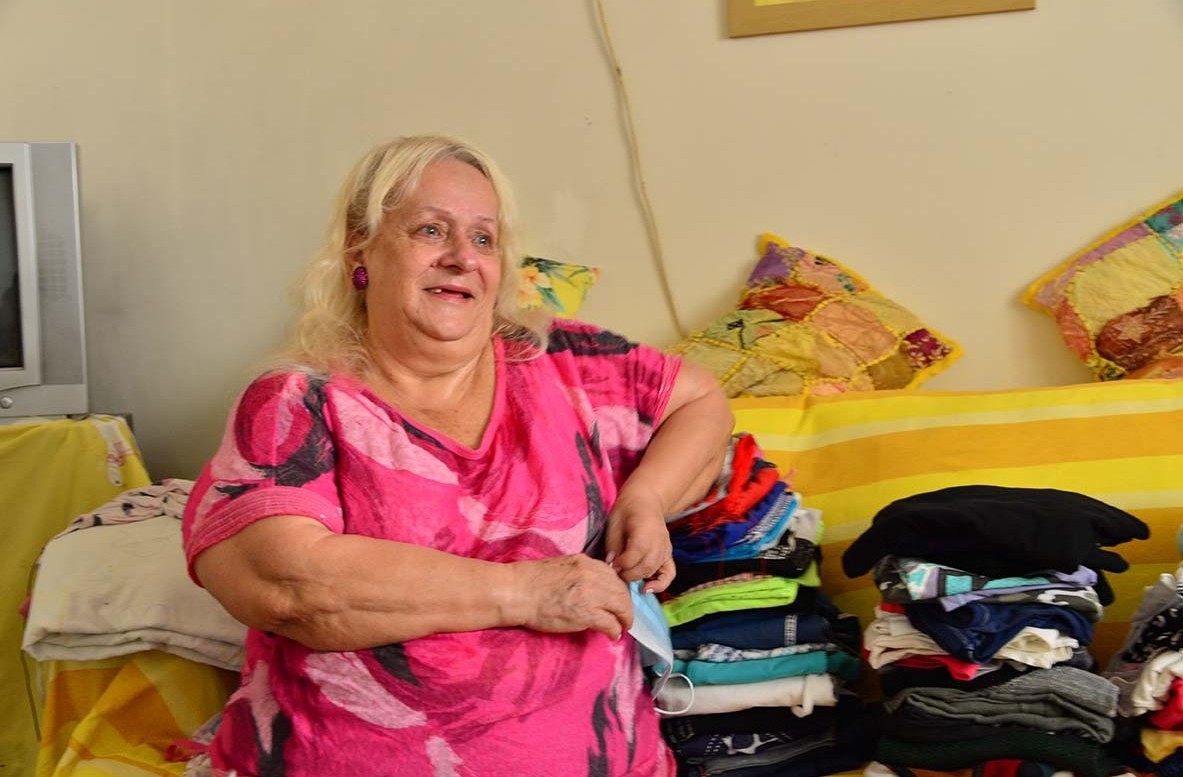
Farida Saleba is picking up the pieces of her home after the Aug. 4 explosion.
Like many Beirutis, Farida Saleba compares the blast of Aug. 4 to the sustained destruction she and others survived during Lebanon’s civil war. During the war "a rocket struck upstairs, one floor above me," she said. "This was worse." She’s literally picking up the pieces the blast shook loose from her modest home, where she’s live more than 50 years. Farida used to work as a makeup artist in theaters and films but now, like more than half of the population of Lebanon, she is unemployed and struggling to cope in the aftermath of the explosion.
***
The Hammal family (left to right): Afif Hammal, Hanan Nazzal, who is holding Rafic, and Mohammad Hammal
CT:It’s a similar story for the Hammal family. Mohammad Hammal feels lucky to be alive. He left his job at Beirut’s port just a couple of hours before the Aug. 4 explosion. He sat with his mother and father, and his infant son, Rafic, watching the tragedy unfold. He had already been cut back to half time as an employee, putting a strain on the family’s finances. The next day he found out his job was gone. Health challenges mean his father cannot work, and like many in Lebanon the economic collapse means any money the family may have had in a bank is locked up, inaccessible. "There are a lot of hardships," Mohammad said. He wants to emigrate.
Friday, Aug. 14
MH:Our driver doesn’t know much English, and we know far less Arabic. But with my high school French we’re able to tell him where we need to meet our colleagues from Anera, down by the port. We’re trying to get in and access the containers of humanitarian supplies lost in the blast, to document the damage and see if anything might be salvageable. Anera already has a lab lined up to test the supplies for ammonium nitrate contamination, but none of us are optimistic these tests will render the goods useable. Who would want to wrap their little one in a blanket from a baby care kit covered in fertilizer dust?
An ammonium nitrate explosion wrecked Beirut's primary grain storage facility. Lebanon imports most of its food through this port, and its closure is expected to drive up food prices yet again. The country's food prices have tripled in the last year befor
MH:The port is heavily guarded. Overnight the French amphibious landing ship Tonnere arrived with supplies. The port is heavily restricted to outsiders. It’s a sensitive area as investigations continue into the blast’s origins, rescue workers dig for remains, and now there’s a French warship to guard. We’re sent ping-ponging between the offices of the captain of the port and the army’s command center. Two hours of waiting. We decide to abandon the effort once it’s clear the Army won’t let anyone else into the port.
CT:But there’s still plenty of work to do. There are wire transfers to complete so our local colleagues can buy food for feeding hungry people.There are calls with potential partners who want to hear more about what we’ve seen and how we can collaborate to help.
Thursday, Aug. 13
MH: We spent two days in quarantine at our hotel in Beirut, after arriving in the wee hours of Tuesday. Cleared by negative coronavirus test results from Lebanon’s Ministry of Health, Carrie and I are finally able to get out to survey damage. The two days at the hotel were spent compiling information and coordinating with regional staff and learning the severity of the need.
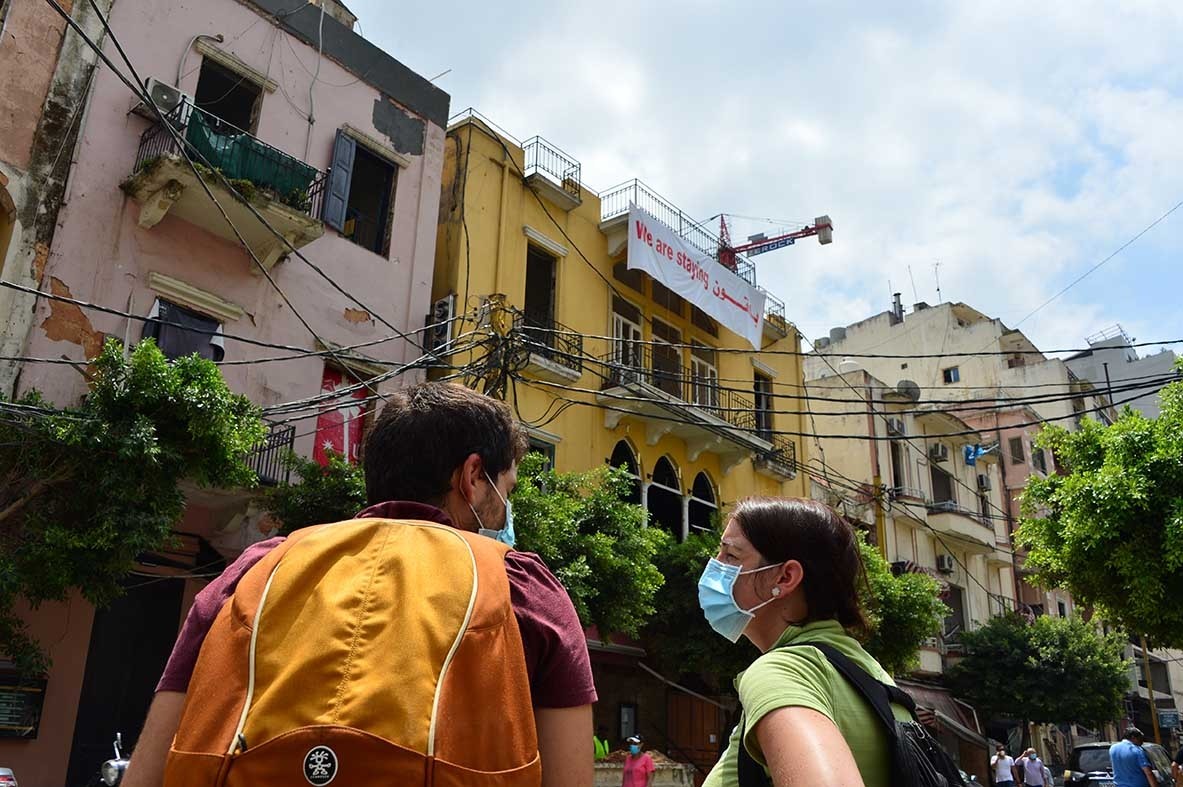
The team surveys damage on Gemmayzeh Street.
MH:We meet Camille on Gemmayzeh Street and begin to take in the destruction. Military presence is heavy in the blast zone, with assault rifles as prolific as shovels and brooms. Debris cleanup has begun. Walking neighborhoods, it’s clear why shelter needs are so pressing. Many homes are uninhabitable. Collapsed walls reveal families and business owners trying to pick up literal pieces of the lives they’ve built.
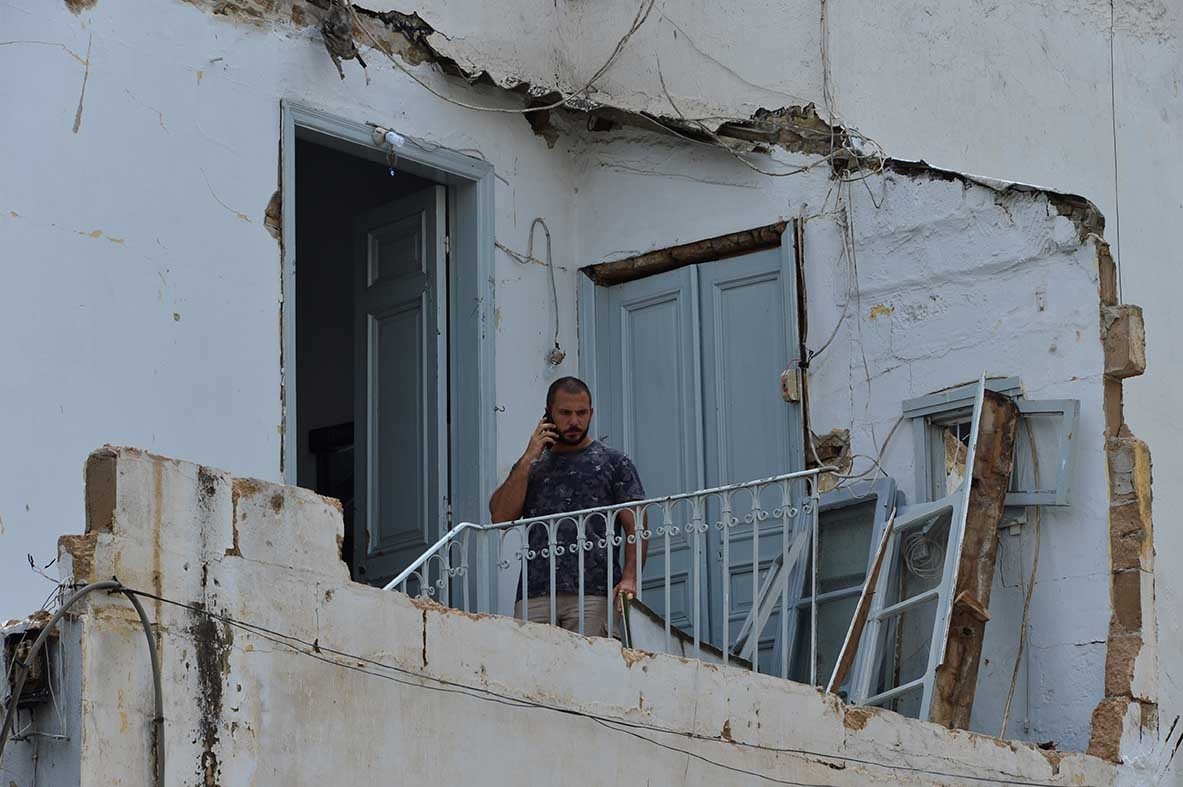
Surveying damage in Karantina, one of Beirut's poorest neighborhoods.
MH: Camille Kadi is a local translator and guide. Camille guides us to the poorest neighborhood impacted by the blast. Quarantina (I’ve also seen it spelled, “Karentina”) adjoins the port facility and is home to dozens of blocks of squat, concrete tenements. It’s where the working class, the day laborers and cleaners and domestic workers live. That’s where we met Khayrallah Warde. News of our presence spreads in the apartment, and soon we’re invited to see everyone’s damage. Cracked ceilings. Blown out windows. Several ask if we’ll be handing out cash to help while we’re there. Complaints that people with cameras come to see the damage but no one comes to help.
"We’re coming," Carrie and I assure them. "We promise."
Sunday, Aug. 9
MH: I’ve never seen Dulles so empty. Qatar Airways issues everyone a face shield, with the requirement to wear it and a mask to board. Carrie and I are anxious to reach Beirut — and most concerned about entering. Will our test results be presented sufficiently for immigration officials to permit us to enter Lebanon? What will the PCR test on arrival be like? How will we get our results? Do we really have to quarantine for 48 hours after we land?
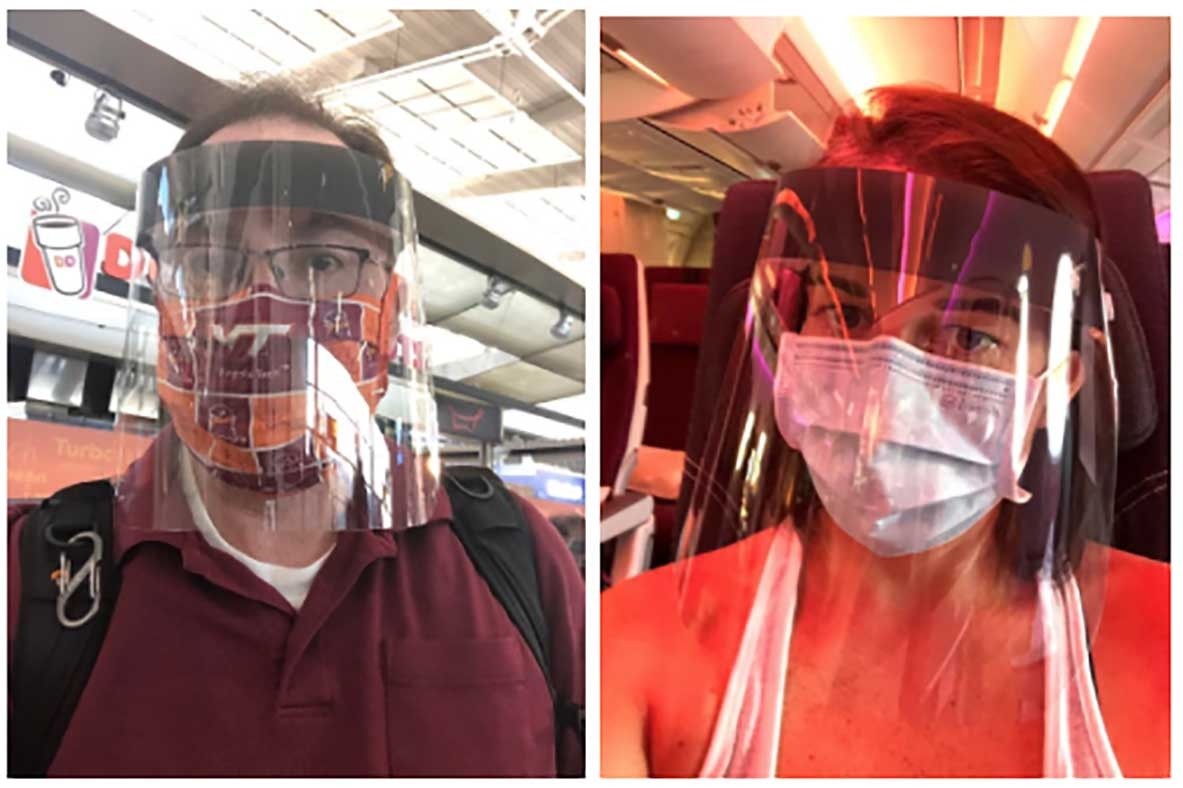
Matt Hackworth and Carrie Taneyhill donned face masks and face shields for their trip to Beirut.
Thursday, Aug. 6
MH: I started the day interviewing a staff member who survived the blast. We shared her story right away so that it was clear our staff survived, and we had capacity to help. The decision to deploy staff came quickly, even with the added complications of traveling in the pandemic era. Lebanon’s government required proof of a negative COVID-19 PCR test within 96 hours of arriving in Beirut. (Director of humanitarian assistance Carrie Taneyhill) and I scrambled to find testing sites near our homes that could process such a request. Thankfully, both of us were able to find testing sites and gained negative results that cleared us for travel.
CT: So far during the quarantine and times of COVID, I have been blessed to never actually need a test. Nor has anyone in my family. So finding myself suddenly needing to get a test AND get those results back within 72 hours so I could travel sent me into panic mode.
Wednesday, Aug. 5
MH: The tragic news coming out of Beirut was heartbreaking. Our neighbors there were suffering, and we knew we had to send help as quickly as possible. Thankfully, the generosity and love from people like you make it possible for Lutheran World Relief to respond when disasters strike. We formed a quick working group to share information and consider how we might help. We learned of a staff member who survived the blast, and began to lay the groundwork for a response. Our humanitarian assistance, Asia & the Middle East and communications staff connected to learn of needs on the ground from local staff.
Tuesday, Aug. 4
MH: I keep the BBC World Service streaming on a TV in my home office in Oxford, Miss. In between meetings I saw the news of the explosion break. My first thought was a terror attack, always a sad possibility in our current reality. Coming at the end of Beirut’s workday, our communications team picked up on the news in the middle of our workday and watched events unfold.


